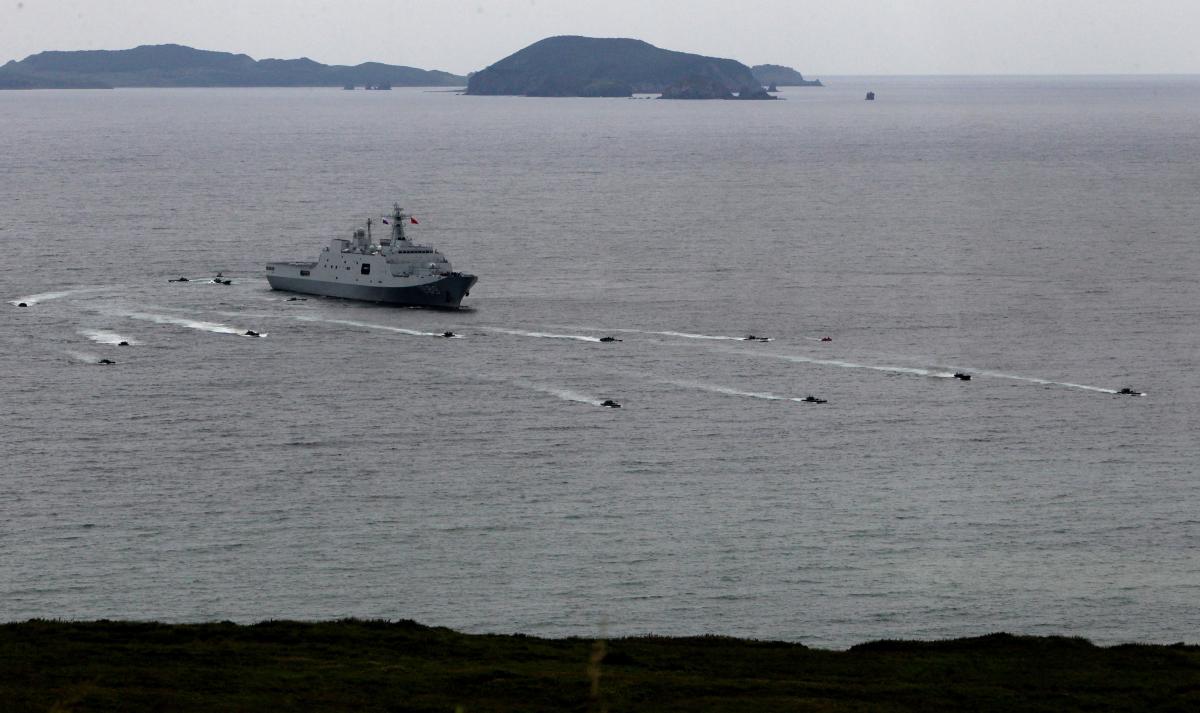
When I served in the Marine Corps, I spent most of my time as far away from ships as possible in the middle of the Iraqi desert and as a Middle East expert. In what might have been the only successful pivot in recent U.S. foreign policy, since entering Congress, I have dedicated much of my focus to maritime security in the Indo-Pacific.
Since coming to Congress, I have spent a good deal of time speaking and writing on naval topics. I’ve had the privilege of speaking to the Surface Navy Association, CSIS, and the Naval Institute, and writing for War On the Rocks, for example. In these conversations, I have come to realize that we can no longer afford just to preach to the sea power “choir.” As Admiral Phil Davidson, the former Commander, U.S. Indo-Pacific Command, recently warned, we may have six years or less before the People’s Republic of China (PRC) takes action against Taiwan. Some have taken to calling this the “Davidson window.” Other senior leaders, including Chief of Naval Operations Admiral Michael Gilday and Commandant of the Marine Corps General David Berger, agree with his assessment. Think about that for a minute. The United States may only have a few years to prepare for a war that could decide the course of the remainder of this century.
Geography dictates such a war would be waged first and foremost by the Sea Services. The United States cannot simply pay lip service to the idea of naval supremacy anymore; we have to earn it, every day. To avert disaster—and make no mistake, that is where our present course leads—the White House, Congress, and the Pentagon must act with a sense of urgency and advocate for, build, and resource American sea power before it is too late.
The 2018 National Defense Strategy is predicated on deterrence by denial. So, what, exactly, do we seek to deny? The most stressing and dangerous scenario is a PRC “fait accompli” attack against Taiwan, which the United States would seek to deny through the use of integrated sea power. If we are honest with ourselves, this is not a task we are up to today. We have six years. This is an “Apollo 13” moment—lock all the smart people in a room and do not let them leave until they figure it out.
The Davidson window will close rapidly. We must build a battle force that is ready for war—not in 2045, but by 2025. Preparing for such a war will require hard choices today. We must grow our naval presence in Japan, Guam, and Australia—even if that comes at the expense of naval presence elsewhere. We must ensure our amphibious forces can contribute long-range fires to the fight. The Marine Corps needs long-range weapons and forces distributed across every U.S. territory and possession in the Indo-Pacific. Naval logistics must be able to deliver weapons, spare parts, food, fuel, and people in contested environments. There is not a moment to lose in this race.
Last, and perhaps most important, we must communicate often and honestly with the American people about the stakes. If we fail to reverse current trends, we are going to wake up one day and we will have either lost a war or abandoned Taiwan. In so doing, we will have allowed the Chinese military to turn Japan’s flank, handed the Chinese Communist Party control over a commanding share of global semiconductor production, and broadcast to the entire world that the United States does not stand by its friends. We will have condemned 24 million Taiwanese people, who currently live by democratic principles, to suffer under an autocratic regime.
This is a dark future, but it is one that is heading our way if we fail to act.
Theodore Roosevelt was one of our great sea power presidents. Under his leadership, the Great White Fleet announced the United States’ arrival on the world stage and set the foundation for American naval supremacy in the 20th century. As President Roosevelt himself put it, “We have no choice as to whether or not we shall play a great part in the world.”
A physics professor from the University of Berlin who was visiting the United States expressed a similar sentiment in 1931. He said, “The people of this country must realize they have a great responsibility in the sphere of international politics. The part of passive spectator is unworthy of this country and is bound in the end to lead to disaster all round.”
That professor was Albert Einstein, and he was right. Disaster came less than two years later when Adolf Hitler came to power in Germany.
If we remain passive spectators rather than passionate sea power advocates, not only will it lead to geopolitical disaster, at some point we will no longer be worthy of global leadership. We must fight for American naval supremacy: It is one ship we can never give up.
No comments:
Post a Comment